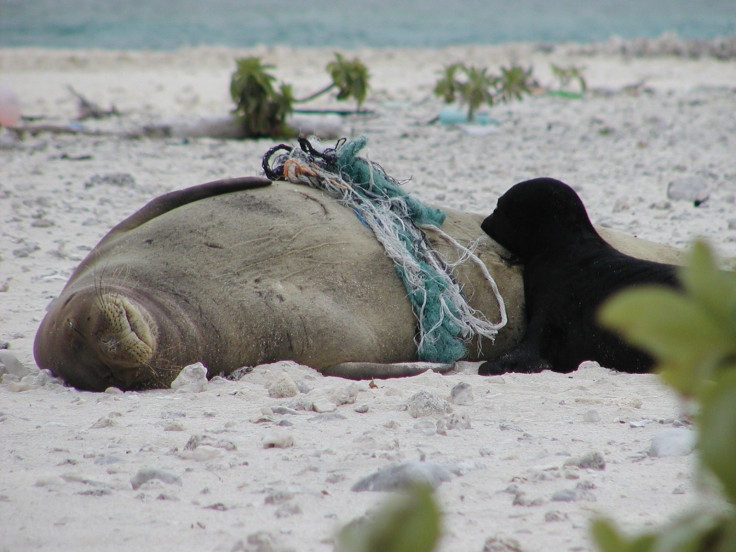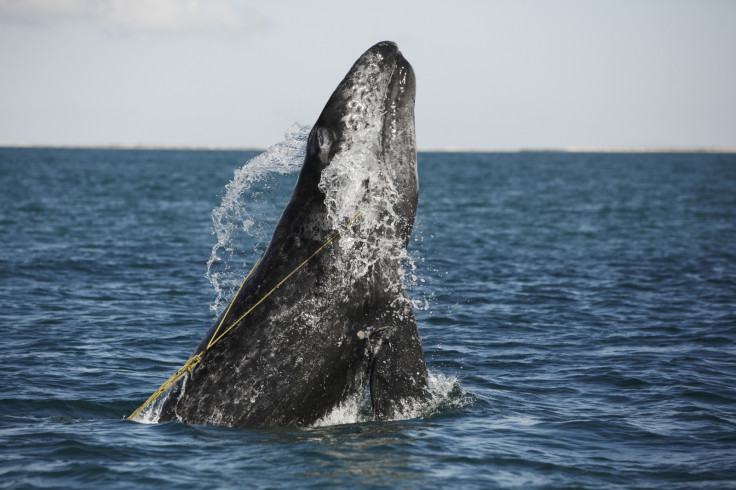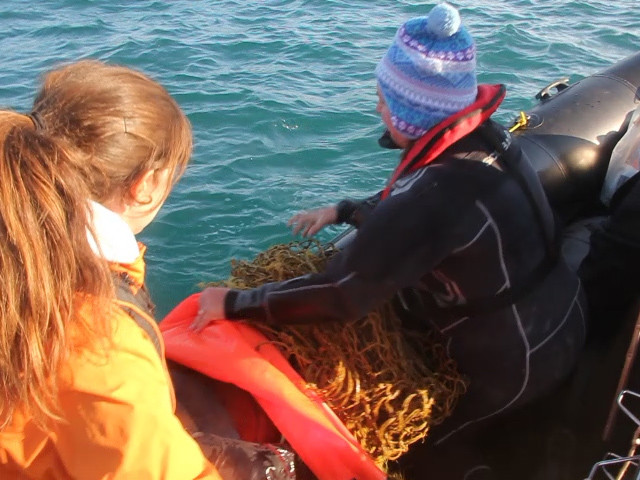World Oceans Day 2017: There is a ghostly killer haunting our oceans
Fishing litter or 'ghost gear' causes a slow and painful deaths for hundreds of thousands of animals a year.
In one day, more than 274 marine animals will become trapped in fishing litter such as nets, lines and traps. That works out as more than 100,000 a year.
This waste, known as 'ghost gear', can cause injury and death to wildlife through cuts, ingestion and starvation. A whale trapped in ghost gear may suffer, suffocate and starve for up to six months before eventual death. It's inhumane.
There is also a lot of waste entering the ocean. About 640,000 tonnes of plastic is left in the ocean each year – that's equivalent to more than 13 Titanic. Not only does this impact marine life, but it also breaks down into microplastics, which can enter the human body through the fish we consume. More than a quarter of fish sold at markets in Indonesia and California now contain plastic from different sources in the ocean, including ghost gear.
This waste is not going anywhere fast. Most of this gear is made of plastics that take centuries to break down.
The level of ghost gear has increased in recent years and is likely to increase further with increasingly intensive fishing. This creates wide-ranging problems for the marine environment and costs millions of dollars in ocean clean-up costs.
Most of the fishing industry does not want to lose its equipment. It is expensive to replace and they do not want to damage the ecosystems that they work in. Fishing may have run in the family for years for many sustainable fishermen, and they want that to continue.
Fishermen are increasingly finding solutions to the problem. This could be recycling old equipment, fitting escape hatches to fishing pots and coordinating with volunteer groups to retrieve lost nets.
They are also coordinating with volunteer divers, such as Fathoms Free in Cornwall, who are working with fishermen to identify spots where equipment has been lost. The divers can then organise a retrieval.

Fathoms Free has recovered some 8.5 tonnes of litter over two years from the shore alone. The divers have recently bought a new rib boat funded by World Animal Protection which allows them to widen their searches.
An increasing number of eco-friendly companies are coming forward to recycle ghost gear into items such as swim wear, wetsuits, kayaks and bodyboards. This creates a circular economy and aids further conservation efforts in the area.
Both Fathoms Free and some of these companies are members of the Global Ghost Gear Initiative. This is a network setup by World Animal Protection and includes 80 participants driving innovative solutions to the problem.

Although there is a lot of good work going on locally and nationally, there needs to be a global approach for the problem to be monitored and solved at scale. Governments and industry are part of this solution.
This includes bringing together partners to stop fishing equipment being lost and abandoned. For instance, by promoting best practice in manufacturing and use and supporting new ways to reuse old equipment, giving it new life. This will help to protect marine animals from harm and safeguard human health and livelihoods.
At the UN Conference of the Oceans this week we hope many industry and government representatives will join our effort to eliminate ghost gear and create safer, cleaner oceans.

Chiara Vitali is Sea Change Campaigns Manager at World Animal Protection UK
© Copyright IBTimes 2025. All rights reserved.





















